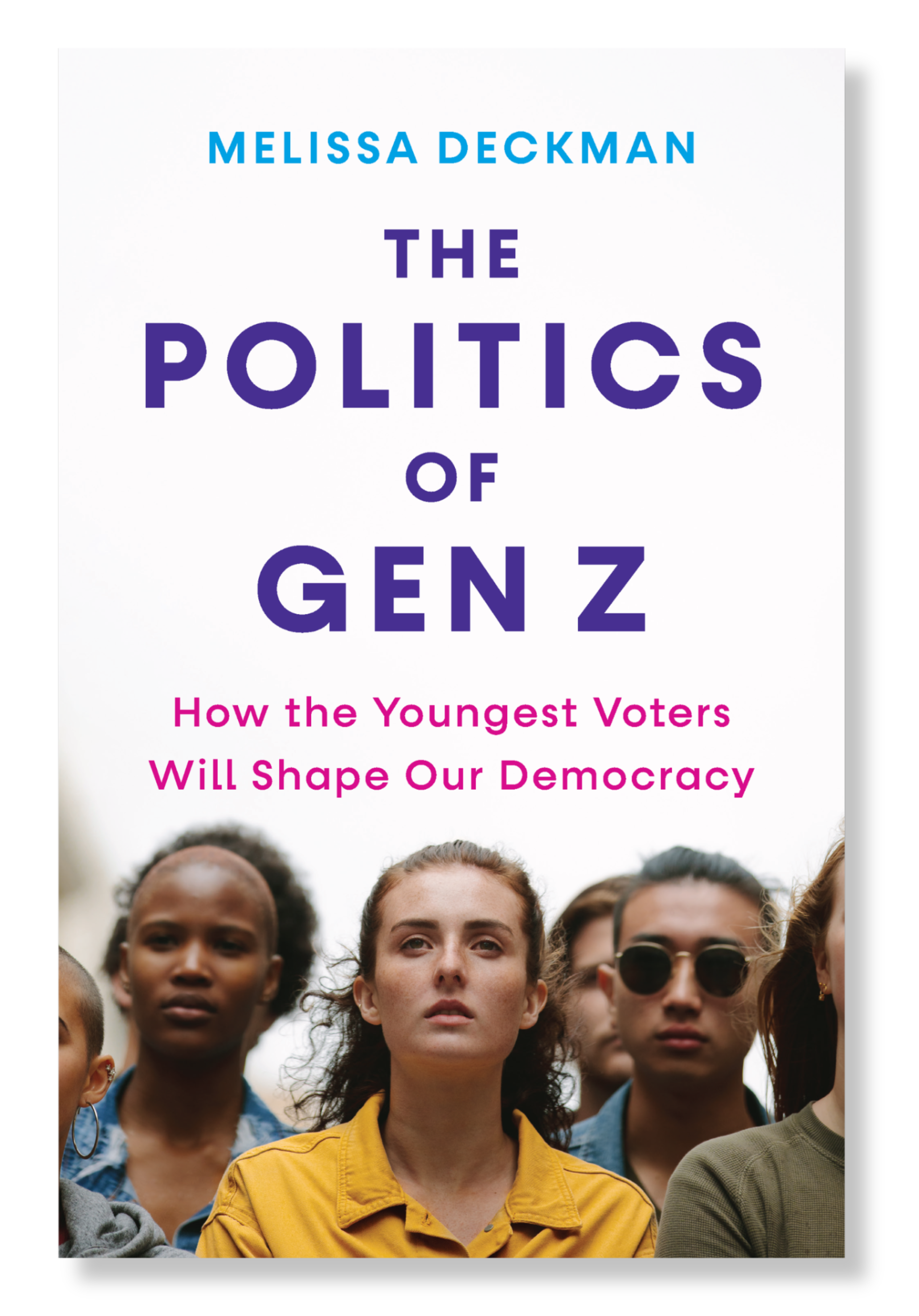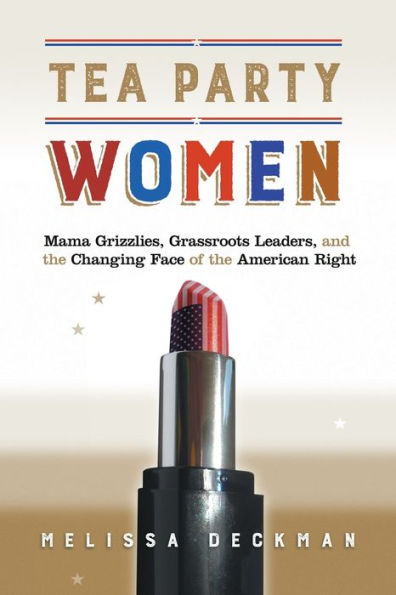The Politics of Gen Z:
How the Youngest Voters Will Shape Our Democracy
By PRRI CEO Melissa Deckman, Ph.D.
Watch Melissa Deckman discuss “Gen Z and the 2024 Election: How Young Americans Are Reshaping U.S. Politics” with a panel of experts on gender and politics.

Progressive activism today is increasingly spearheaded by the nation’s youngest voters.
Gen Z ― those born between 1997 and 2012 ― has come of age in a decade of upheavals. They have witnessed the election of Donald Trump, the murder of George Floyd, and the Dobbs Supreme Court decision, and they have lived under the constant threats of mass shootings and climate change. In response, left-leaning Zoomers, particularly women and LGBTQ people, have banded together to take action.
This book tells the story of Gen Z’s growing political participation ― and why it is poised to drive U.S. politics leftward. Bringing together original data and compelling narrative ― including nearly one hundred interviews with Gen Z activists and several national surveys ― political scientist Melissa Deckman explores the world of youth-led progressive organizing, highlighting the crucial importance of gender and sexuality. She reveals why women and LGBTQ Zoomers are participating in politics at higher levels than their straight male peers, creating a historic “reverse gender gap.” Deckman takes readers inside Gen Z’s fight for a more inclusive and just future, sharing stories of their efforts to defend reproductive rights, prevent gun violence, stem climate change, and win political office. A deep dive into the politics of Gen Z, this book sheds new light on how young voters view politics and why their commitment to progressive values may transform the country in the years ahead.
Order The Politics of Gen Z:
Q&A With Melissa Deckman, Author of The Politics of Gen Z
What motivated you to write The Politics of Gen Z?
I decided to write this book when I saw data showing that Gen Z women were engaged in higher levels of politics than their male counterparts during the Trump era. Historically, there’s been a gender gap when it comes to political engagement. Throughout the 20th century, women have been less likely to participate in politics than men. What’s unique about Gen Z is that we see young women more engaged in politics than young men. So, the book is an examination of why that is and what it means for our political future.
How does The Politics of Gen Z help explain what’s happening in politics right now?
In a few months, Americans will go to the polls to elect a president. While Gen Z has been far more likely to vote for Democratic candidates, there is some data showing that the GOP might be making inroads with young men in particular, so understanding this gender dynamic is going to be really important in the 2024 election.
What are the most pressing issues in America today and what perspective does The Politics of Gen Z offer on these issues?
One of the things that comes across in talking to Gen Z women activists, talking to Gen Zers in focus groups, and looking at reams of survey data is that Gen Z broadly is very committed to a more inclusive democracy. I’ve found that Gen Z women want a democracy that looks like their generation. In terms of political involvement, they want more women involved in politics. They want more people of color. They want more people who are queer. So, they’re advocating for a democracy where all voices are included.
Reviews:
“A compelling and fresh account of how young women and LGBTQ people are leading Generation Z’s political emergence. Deckman has sketched a map to the social and political changes ― and conflicts ― the nation can expect in the years ahead as Gen Z rises to leadership.”
— Ron Brownstein, author of The Second Civil War: How Extreme Partisanship Has Paralyzed Washington and Polarized America
“In The Politics of Gen Z, Melissa Deckman shows how Gen Z is already―and will continue―shaping the future of our democracy. Pairing original survey data and rich interviews with Gen Z activists, Deckman’s intersectional analyses complicate conventional narratives and demand that we take Gen Z women and queer Gen Zers seriously as agents of political change. Those who are seeking solutions to our political crises will be especially drawn to this innovative and ultimately optimistic work. It is a must-read for scholars, students, practitioners, and the public alike.”
— Kelly Dittmar, Rutgers University
“Lots of people outside the ranks of Gen Z have strong views about who they are and what they supposedly think. Melissa Deckman deserves our gratitude for letting Gen Z speak for itself. Built on conversations and astute data analysis, this excellent book explodes stereotypes, breaks much new ground, and will set the standard for future work on this pivotal and often misunderstood generation.”
— E. J. Dionne, Jr., author of Code Red: How Progressives and Moderates Can Unite to Save Our Country and Our Divided Political Heart: The Battle for the American Idea in an Age of Discontent
“Deckman paints a rich picture of this generation’s tremendous political potential, and especially how young women and LGBTQ Gen Zers see, practice, and shape politics in a way that’s driving progress towards our democratic ideals. It’s a must read for anyone looking to better understand and engage this generation in politics.”
— Sara Guillermo, Chief Executive Officer of IGNITE National
“In The Politics of Gen Z Melissa Deckman convincingly argues that Gen Z women (of color) and LGBTQ individuals are the vanguard of Democratic politics and liberal ideology. This is a must-read for anyone concerned about the future of democracy.”
— Nadia E. Brown, Georgetown University
Also by Melissa Deckman, Ph.D.
 Tea Party Women (2016) |
 School Board Battles (2004) |





